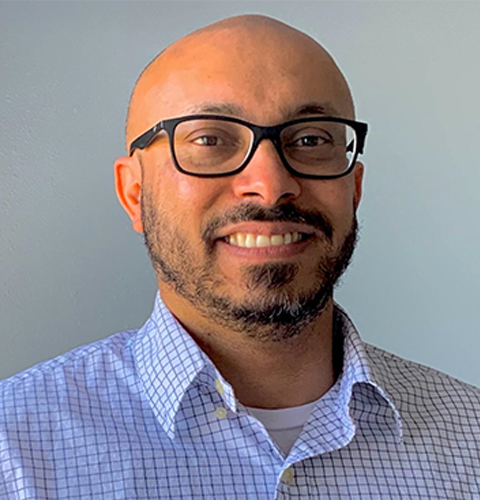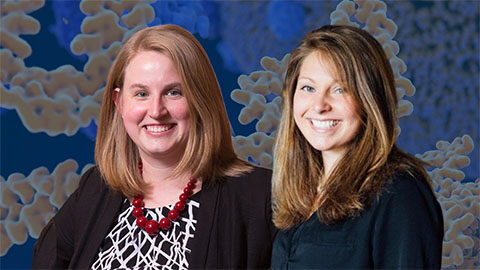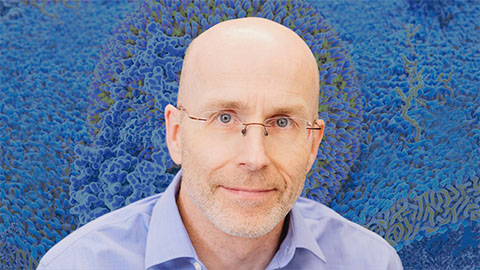
This MOSAIC scholar believes in the power of perseverance
Before Wagner Silva Dantas was born, his mother migrated from the impoverished northeast of Brazil to Osasco, a city in the Sao Paulo metropolitan area, where she hoped to provide a better life for her two children. Dantas said her perseverance and determination helped shape his world view.
Growing up, Dantas faced hardships and responsibilities beyond his years, often taking on the role of the "man of the house," he said, to care for his younger brother while his single mother worked long hours. Despite their financial difficulties, his mother prioritized her children’s education, instilling in them strong values and morals.

Dantas’ life took a positive turn when he became a professional soccer player, which improved the family’s finances. However, he felt a longing for something more, a feeling that was fulfilled when he pursued his undergraduate degree in kinesiology at Metropolitan United College in Sao Paulo. This marked the beginning of a journey that led him to obtain a master's degree and a Ph.D. in the same field from the University of Sao Paulo.
During his Ph.D. studies, Dantas had the opportunity to spend a year as a visiting scholar at the Cleveland Clinic, an experience that profoundly impacted him. “Until that time, I have never imagined coming to the U.S. or living here with my family,” he said, “but destiny always surprises us.”
His principal investigator at the Cleveland Clinic, John P. Kirwan, then accepted a position at the Pennington Biomedical Research Center of Louisiana State University and invited Dantas to move with him and be a postdoc in his new lab. Dantas went home to Brazil, defended his dissertation and then returned to the U.S.
At Pennington Biomedical, Dantas now focuses on studying the nuclear factor erythroid-related 2, a key regulator of antioxidant and redox-regulating protein expression that is crucial for maintaining redox balance throughout life in humans. His research aims to develop new approaches to reducing fat mass while preserving muscle mass; this is particularly significant for combating sarcopenic obesity, which is characterized by reduced muscle mass and low strength.
Dantas’ passion for education and its transformative power stems from his own experiences, driving him to support and inspire the Latino community, especially immigrants facing similar challenges.
“Don't give up on your goals,” he said, “and have full conviction that you are capable of achieving your dreams regardless of the reality that surrounds you today.”
As one of this year’s American Society for Biochemistry and Molecular Biology Maximizing Opportunities for Scientific and Academic Independent Careers, or MOSAIC, scholars, Dantas is committed to promoting diversity in science and passing on his legacy of perseverance and determination. The MOSAIC award provides him with two years of postdoctoral funding, followed by three years of R01-level funding to launch his independent faculty career.
Dantas aspires to use science and education to improve the living conditions of elderly people and bring a better quality of life to people with obesity. He plans to pursue a faculty position to keep providing knowledge and improving people’s lives.
Enjoy reading ASBMB Today?
Become a member to receive the print edition four times a year and the digital edition monthly.
Learn moreGet the latest from ASBMB Today
Enter your email address, and we’ll send you a weekly email with recent articles, interviews and more.
Latest in People
People highlights or most popular articles

Redefining lipid biology from droplets to ferroptosis
James Olzmann will receive the ASBMB Avanti Award in Lipids at the ASBMB Annual Meeting, March 7–10, just outside of Washington, D.C.

Creating change in biochemistry education
Pamela Mertz will receive the ASBMB William C. Rose Award for Exemplary Contributions to Education at the ASBMB Annual Meeting, March 7-10 in Washington, D.C.

Amacher, Pollock named Henry Dreyfus scholars
They were recognized for their outstanding research scholarship and a deep commitment to undergraduate education and each received $75,000 to fund their research.

Trainee mentorship as immortality
Suzanne Barbour will receive the ASBMB Sustained Leadership Award at the ASBMB Annual Meeting, March 7-10 in Washington, D.C.

Life in four dimensions: When biology outpaces the brain
Nobel laureate Eric Betzig will discuss his research on information transfer in biology from proteins to organisms at the 2026 ASBMB Annual Meeting.

Fasting, fat and the molecular switches that keep us alive
Nutritional biochemist and JLR AE Sander Kersten has spent decades uncovering how the body adapts to fasting. His discoveries on lipid metabolism and gene regulation reveal how our ancient survival mechanisms may hold keys to modern metabolic health.

